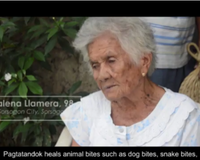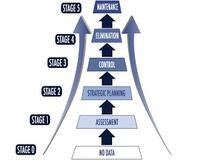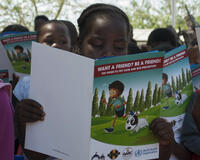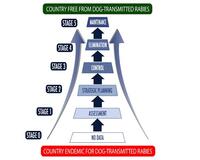Media
It takes teamwork
The editorial for the February GARC newsletter
Documenting rabies control in communities
Filming aspects of the Communities Against Rabies Exposure (CARE) projects in Ilocos Norte and Sorsogon, journalism students were able to vividly capture insights into how rabies impacts individuals and how whole communities come together to support control efforts.
Workshop evaluates rabies control activities in Cameroon using the SARE tool
Cameroon, a Global Health Security Agenda (GHSA) member country, is leading the fight against rabies within the central African region. It has taken the first critical step towards controlling and eliminating rabies by developing an up-to-date and comprehensive national control strategy.
Collecting Bite Victims' Stories
Louise Taylor recently visited the Philippines GARC office where the team are starting a new project to assess the effectiveness of free animal bite treatment centers. She describes her day testing out the protocols in communities and animal bite treatment centers in Tarlac Province.
3000 Want a Friend, Be a Friend booklets for children in rural South Africa
A successful campaign to deliver valuable rabies educational resource to children in rural South Africa
World Rabies Day 2016 Celebration in the Philippines: Moving towards Rabies-free by 2020
The Philippines is among the seven Southeast Asian countries where canine rabies is still highly endemic, and so the World Rabies Day celebration presents an opportunity to educate and involve Filipinos in the shared goal to ultimately eliminate rabies in the country by the year 2020.Where do we go from here?
The editorial for the November 2016 newsletter. Trump’s success represents an overthrow of the establishment and a period of uncertainty. What impact will it have on support for international aid and global rabies prevention efforts?
Helping countries to help themselves: the updated SARE tool
GARC in collaboration with the FAO and other partners has worked tirelessly over the past months to revise and improve upon the SARE tool.
Journalism students experience rabies control in action
Journalism students from University of Los Baños have been reporting on the CARE project in Ilocos Norte